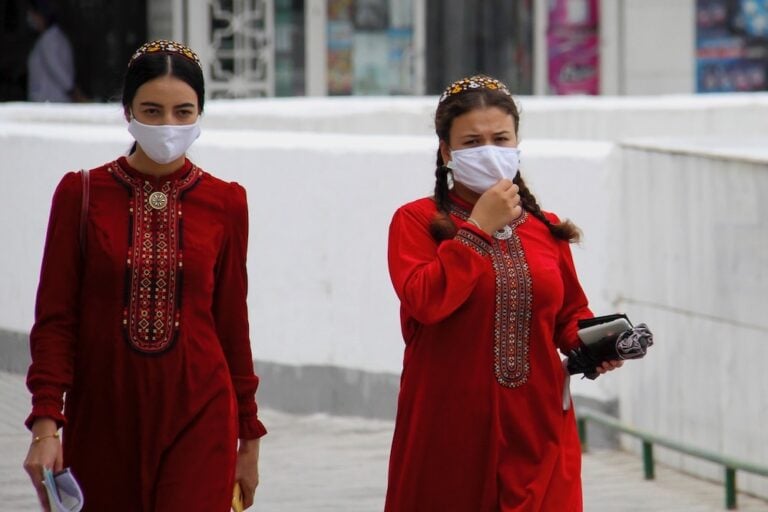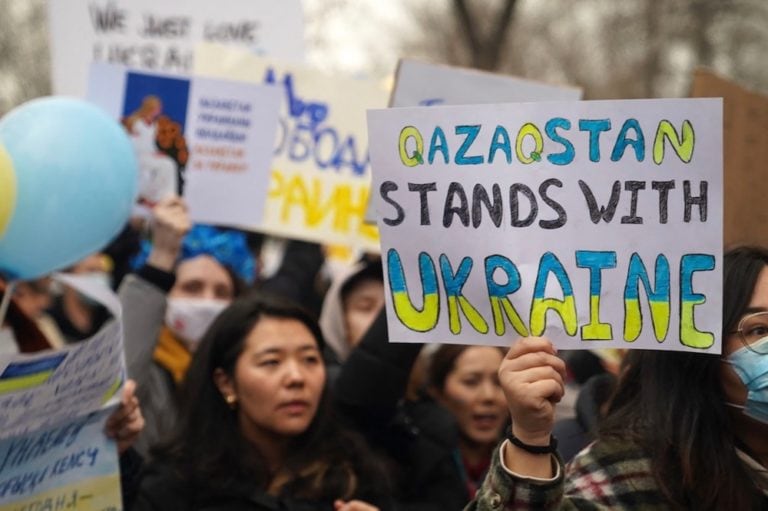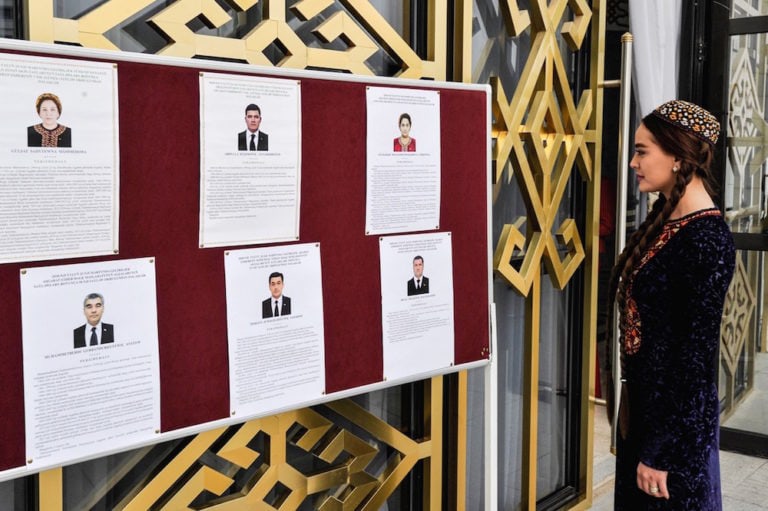The Turkmen government imposes draconian restrictions on freedom of expression, say Human Rights Watch, Freedom Now and the Turkmen Initiative for Human Rights.
(Human Rights Watch/IFEX) – October 5, 2012 – The following Turkmenistan Universal Periodic Review Submission was prepared by Human Rights Watch, Freedom Now, and the Turkmen Initiative for Human Rights:
The Turkmen government continues to pursue and impose harsh and highly repressive policies and laws. Since the UN Human Rights Council’s initial review of Turkmenistan under the UPR procedure in 2008, the government has ignored recommendations urging the release of political prisoners and an end to the harassment and persecution of independent journalists, human rights activists, and dissidents. The government has not eased tight and arbitrary restrictions on the right to freedom of movement, nor has it opened up the country to independent human rights scrutiny.
Political Prisoners
A key concern in Turkmenistan is the government’s use of imprisonment as a tool for political retaliation. As a result of more than two decades of this practice, unknown numbers of individuals languish in Turkmen prisons on what appear to be politically-motivated charges. The government did free two political prisoners named in the previous UPR recommendations: Valery Pal was released by a general presidential amnesty in December 2008, and Mukhametkuli Aymuradov was was released after serving out his 14-year prison term. However, other individuals named in recommendations remain unjustly imprisoned, and the government in fact rejected all recommendations to release political prisoners and to “account for those prisoners whose fate is unknown.”
Annakurban Amanklychev, Saparurdy Khajiev, and Ogulsapar Muradova were affiliated with the Turkmenistan Helsinki Foundation – a human rights group based in exile in Bulgaria. In June 2006, police in Ashgabat arrested all three. In public statements, the security services cited Amanklychev’s participation in human rights trainings in Poland and Ukraine and his work with British and French journalists who visited Turkmenistan to justify his arrest. In August 2006, a court sentenced Amanklychev, Khajiev, and Muradova in a closed trial to prison terms ranging from six to seven years on bogus charges of “illegal weapons possession.”
Ogulsapar Muradova died a suspicious death in custody in September 2006, and no reliable investigation of her death was conducted. Turkmen authorities declared that Muradova “died of natural causes.” Notably, Turkmen authorities rejected a recommendation to hold an independent inquiry into her death.
Amanklychev and Khajiev remain in prison, serving seven-year sentences.
Gulgeldy Annaniazov is a former political prisoner who from 2002 until 2008 lived in exile in Norway, where he holds refugee status. Annaniazov returned to Turkmenistan in June 2008, and was arrested the next day at home without a warrant. He was allegedly charged with illegal border crossing (for returning to his own country) and was sentenced on October 7, 2008 to 11 years of imprisonment. His family does not have information on the exact charges against him, has not been allowed to visit him since his arrest, and was not informed about the time and place of his trial.
In February 2011, two singers – Murad Ovezov and Maksat Kakabaev – were sentenced to five and seven years imprisonment, respectively, almost certainly in retribution for their music and their involvement in a talk show aired on a Turkish satellite channel a month earlier. The talk show featured Western-style interviews with Ovezov and Kakabaev and showed clips of the singers’ Western-style music videos. After the show was aired, police summoned Kakabaev, Ovezov, and five singers who have been seen in other video clips with Ovezov and Kakabaev. The five singers were released after serving 15-day misdemeanor sentences for charges that are not known to human rights defenders. Kakabaev and his father, brother, and brother-in-law were sentenced to seven years’ imprisonment on charges not known to human rights defenders and that are allegedly related to a year-old, resolved dispute with a neighbor over a television antenna. Ovezov’s sentence was based on a suspended sentence relating to a car accident he had been involved in previously.
Freedom of Expression and Information
The government of Turkmenistan accepted, but failed to act on, a number of general recommendations regarding freedom of expression and information and harassment and intimidation of journalists. The government does not tolerate any criticism. It imposes draconian restrictions on freedom of expression and association, and enforces them by threatening, harassing, or imprisoning those who dare to question its policies, however modestly. The UN Human Rights Committee in March 2012 concluded that the government “systematically does not respect the right to freedom of expression,” “harass[es] and intimidate[s] journalists and human rights defenders,” and “monitors the use of the internet and blocks access to some websites.”
For example, in October 2011 Dovletmurad Yazkuliyev, a journalist for Radio Free Europe/Radio Liberty (RFE/RL), was sentenced to five years’ imprisonment on false charges of urging his sister-in-law to commit suicide. The charges, brought in September 2011, were in retribution for Yazkuliyev’s blogs critical of the authorities’ inadequate response to explosions in a military armory in July 2011, which caused many deaths and extensive damage to civilian property. A week after the blasts, National Security Service officials interrogated Yazkuliyev and threatened him with prison if he did not stop his reporting on the incident. After an international outcry, on October 26, 2011, Yazkuliyev was released from prison under a general presidential amnesty.
Amangelen Shapudakov, another RFE/RL contributor and 80 years of age at the time, was detained on March 7, 2011, and forcibly confined in a psychiatric facility for 43 days. Jumageldi Mulkiyev, dismissed from his position as editor-in-chief of the magazine Turkmen World, was forcibly confined for eight days in a psychiatric hospital in March 2011 after his return from holiday in Iran.
Internet access remains limited and heavily controlled by the state. The country’s only internet service provider is state-operated, and websites for the exiled political opposition, international human rights organizations, and foreign-based news organizations are blocked. Social network sites such as Livejournal, Facebook, Twitter and YouTube are also often unavailable
Internet cafes require visitors to present their passports. The government is known to monitor electronic and telephone communications.
Freedom Now
Turkmen Initiative for Human Rights


